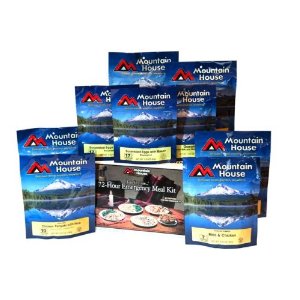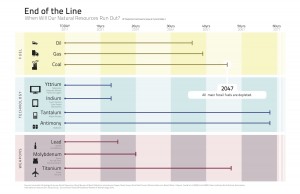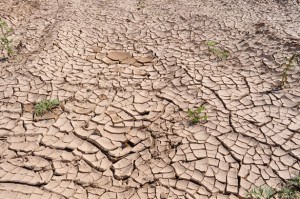 I’m going to start a new series of posts here, about preparing for emergencies. It’s not that I expect an imminent zombiepocalypse, but it’s just a good all around idea to have the ability to be self-sufficient for a short period of time without advance notice. Earthquakes, wildfires, power outages, and hurricanes are just some of the events that can disrupt our very complex support system.
I’m going to start a new series of posts here, about preparing for emergencies. It’s not that I expect an imminent zombiepocalypse, but it’s just a good all around idea to have the ability to be self-sufficient for a short period of time without advance notice. Earthquakes, wildfires, power outages, and hurricanes are just some of the events that can disrupt our very complex support system.
The topic for today is food, and there’s really one clear winner here – freeze dried food in #10 size cans, such as the one pictured here from Mountain House and available with free shipping at Amazon.com. First of all, food in cans lasts longer than any other food storage option – 25 years or more, in fact. Second, after doing much research, Mountain House stood out as one of the highest quality options available, and given my aversion to any sort of highly processed food, that was a big plus (some of the other options looked downright scary!).
 Keeping in mind that these cans of food, once opened, need to be used up fairly quickly, it’s also a good idea to have smaller packs on hand, in individual serving sizes. For example, a Mountain House 72 hour emergency meal kit (~$55 at Amazon). This set includes three breakfasts and six lunch/dinner entrees – so note that this would really just be a 24-hour emergency meal kit for a family of three, so order appropriately. The downside to these smaller food pouches is a lesser, seven year shelf life. Still, it can make for great camping or backpacking meals as it nears the end of its shelf life, at which point you can just replace your inventory with some new packs.
Keeping in mind that these cans of food, once opened, need to be used up fairly quickly, it’s also a good idea to have smaller packs on hand, in individual serving sizes. For example, a Mountain House 72 hour emergency meal kit (~$55 at Amazon). This set includes three breakfasts and six lunch/dinner entrees – so note that this would really just be a 24-hour emergency meal kit for a family of three, so order appropriately. The downside to these smaller food pouches is a lesser, seven year shelf life. Still, it can make for great camping or backpacking meals as it nears the end of its shelf life, at which point you can just replace your inventory with some new packs.
So how much food should you buy? That’s a more personal question, you need to estimate what sort of disaster you’re planning for, evaluate how much food you typically have on hand in your pantry (assume your refrigerator will be un-powered and the food there will spoil fast), and how many days you’d like to be eating well (we CAN go weeks without food if needed!). And, of course, budget comes into play. Personally, I think a month of ’emergency food’ is not a bad start.




